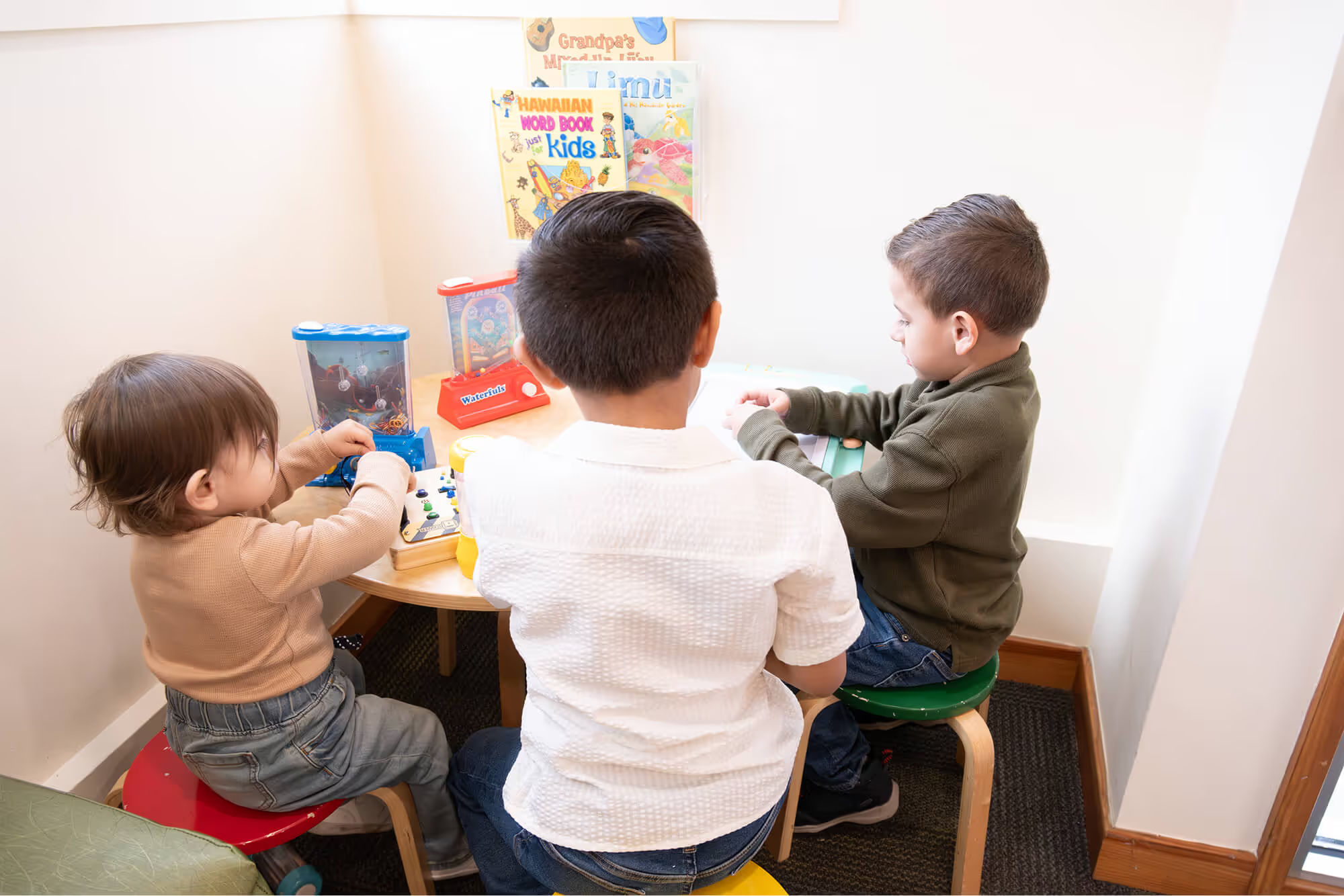Schedule an Appointment
**Requested time is not final until you receive confirmation from our office.Please do not submit any Protected Health Information (PHI).
.avif)

Encouraging good oral habits in your child starts with making dental care fun and part of their daily routine.
.avif)
Show your child that you prioritize your own oral health. Take them with you when you brush and floss your teeth and make it a routine. Remember, you are their role model!
Make brushing and flossing a family activity, demonstrating proper technique and turning it into a game. Create a brushing chart with stickers or small rewards for consistent brushing and flossing, or use child-friendly toothbrushes with their favorite characters.
Maintain a positive attitude about dental visits, presenting them as a normal, important part of staying healthy rather than something to fear. Consistency and positive reinforcement are key to establishing lifelong good oral habits. Don't over explain dental visits, but use child-appropriate language in a way they can understand.
Good oral habits are more than just protecting against cavities. Here are the key benefits of how good oral habits can make a big impact in your child's life.
Establishing good oral habits early sets the foundation for a lifetime of healthy teeth and gums. Children who learn proper brushing, flossing, and dietary habits are more likely to maintain these practices into adulthood.
Good oral health is linked to better overall health. Proper dental care prevent infections, reduces inflammation, and contributes to better heart health as children grow into adults.
A healthy, bright smile can significantly boost your child's self-esteem. When children feel good about their smiles, they're more likely to engage confidently in social situations and express themselves freely.
Establishing good oral hygiene habits at home is crucial for your child's dental health. Here are some key practices to implement:
Teach your child to brush twice a day with fluoride toothpaste and floss daily. Make it fun by using timers, apps, or songs to ensure they brush for the full two minutes.
Encourage a diet rich in fruits, vegetables, and dairy products. Limit sugary snacks and drinks, which can lead to tooth decay. Offer water as the primary beverage to help rinse away food particles.
Schedule semi-annual dental visits for professional cleanings and check-ups. These visits help catch any issues early and reinforce the importance of good oral health habits.
You know that feeling when you first arrive in Hawaii and you instantly feel at ease? We've designed our office to reflect that. Our waiting room is a little slice of paradise, designed to transport you and your keiki (children) to the islands. Surrounded by tropical decor and the soothing sounds of Hawaiian music, you'll feel the stress melt away as soon as you step inside.


Take yourself back to the good old days. Our patients (and parents) love our collection of simple retro toys, including water toys, Etch-A-Sketch, and books about teeth and Hawaii.
Your child's favorite characters make treatment go easier. When needed, we offer streaming of shows and movies during filling procedures, providing a helpful distraction for our young patients.

Find answers to common questions about healthy oral habits.
The appropriate amount of fluoride depends on your child's age, weight, and local water fluoridation levels. If you don't have fluoridated water, your child may need supplements. We can help determine the right amount for your child based on these factors and their toothpaste brand.
A balanced diet including meat/fish/eggs, vegetables/fruits, bread/cereals, and dairy products is crucial for dental health. Limit sugary and high-carbohydrate foods as they increase the risk of tooth decay. A nutritious diet supports healthy tooth development and gum health.
Children should wear mouthguards during any sport or activity with a risk of head, face, or neck injury. This includes hockey, soccer, karate, basketball, baseball, skating, and skateboarding. Custom-fitted mouthguards from our practice offer the best protection and comfort.
You should start weaning your baby off bottles and pacifiers between the ages of 12-24 months. Start off by switching to a sippy cup before transitioning to an open cup once they turn two years old.
Yes. While it is completely normal for children to suck their thumbs or fingers as a soothing mechanism, they should stop around the ages of 3-4 years old. If they continue thumb-sucking past the age of 4, it can lead to dental and speech problems.